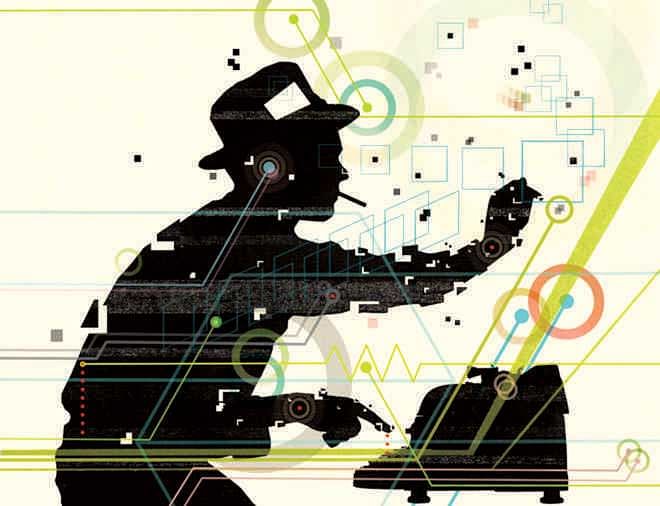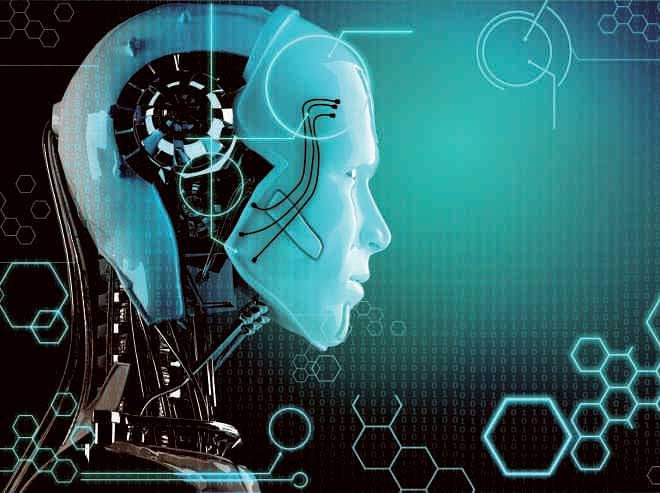Human Touch

Originally put to work writing news reports, the writing software called Quill has found a new job—analysing financial data and producing reports. Quill was developed by Narrative Science, a Chicago company set up in 2010 to commercialise technology developed at Northwestern University, USA. The founders whimsically named Quill after the precursor to the modern pen–that could generate stories from any type of data, starting with sports, financial and real-estate news.
According to Kristian Hammond, a computer science professor at Northwestern and chief scientist at Narrative Science, “We know how to introduce an idea, how not to repeat ourselves, how to get shorter.” Hammond and his colleague Larry Birnbaum worked with Northwestern University's Medill School of Journalism and a number of former journalists to help teach Quill how to write.
It wasn't long before the software started attracting attention from the US intelligence community and other industries, including health care, retail, pharmaceuticals and marketing. Quill is now being used by TV channels to report on baseball games and financial clients such as Forbes, T Rowe Price, Credit Suisse, and USAA. Other developers followed suit. A Pittsburgh startup called OnlyBoth plans to launch its first writing software later in 2015.
When Quill was launched, some experts predicted that it could potentially replace human sports reporters. After all, Quill does in a few seconds what may take a small army of people weeks or months. Developers claim that the software can also take an “angle” for an article. For instance, “when writing about sports for an audience likely to favour a particular team, it can soften the blow of a loss”.
Experts who have long studied how technology shapes the world believe advances like Quill will forever alter some of the world's largest industries. In the book Resource Revolution: How to Capture the Biggest Business Opportunity in a Century, management consultants Matt Rogers and Stefan Heck outline how new innovations such as 3-D printing, autonomous vehicles, commercial modular construction and smart homes might improve the quality of life of billions of people around the globe.

Critics of the tech industry are, however, skeptical. These recent innovations, they say, have not necessarily resulted in measurably more prosperous lives for most people on earth. For all the talk of changing the world, companies like Google and Facebook mainly hire young programmers to figure out a way to serve people more ads, while Apple and Amazon just want to keep selling us new stuff, they argue.
That raises the issue of ethical dimensions of such technologies. John Searle, a Berkeley philosopher who studies consciousness writes in his book Minds, Brains, and Programs, “First let us postulate that the computer scientists succeed in developing intelligent machines that can do all things better than human beings can do them. In that case presumably all work will be done by vast, highly organized systems of machines and no human effort will be necessary… the human race might easily permit itself to drift into a position of such dependence on the machines that it would have no practical choice but to accept all of the machines' decisions.”
To computer scientists, the human brain may look like a jumble of circuits—chaotic and disorderly. But chaos is the order of the universe. Out of disorder an often-lovely order emerges. When viewed close up, a painting looks like chaotic brush strokes and squiggles; but when viewed from a distance, it becomes the Mona Lisa, orderly and beautiful—mysterious and a reflection of the Creator Himself. The smartest computer's intelligence pale next to this genius.
In the Chinese room, a thought experiment, John Searle, the philosopher challenges the idea that it is possible for a computer running a programme to have a mind and consciousness, regardless of how intelligent the programme is. I think a computer is no more aware of what it is or what it is doing than a lawn mower is aware of the lawn it's cutting.
When in 1997, the chess-playing supercomputer developed by IBM defeated Garry Kasparov, one of the greatest chess players of all-time; a lot of people were upset. They think Kasparov lost because he got too emotional. I'm glad Kasparov can get emotional. That's something the computers can't do.
Not yet.

 For all latest news, follow The Daily Star's Google News channel.
For all latest news, follow The Daily Star's Google News channel. 



Comments